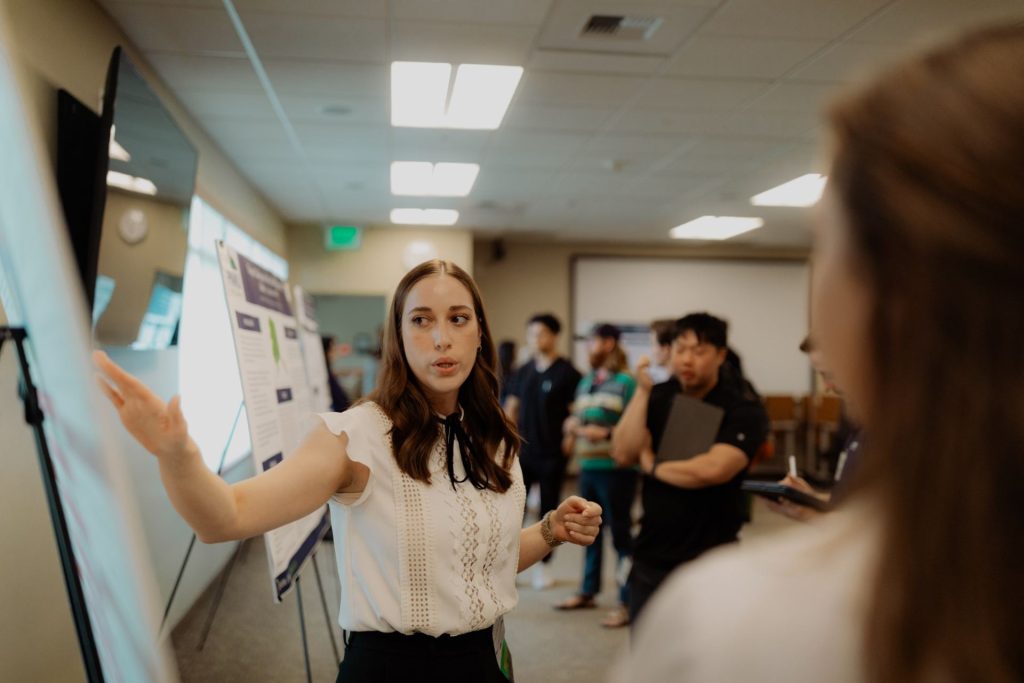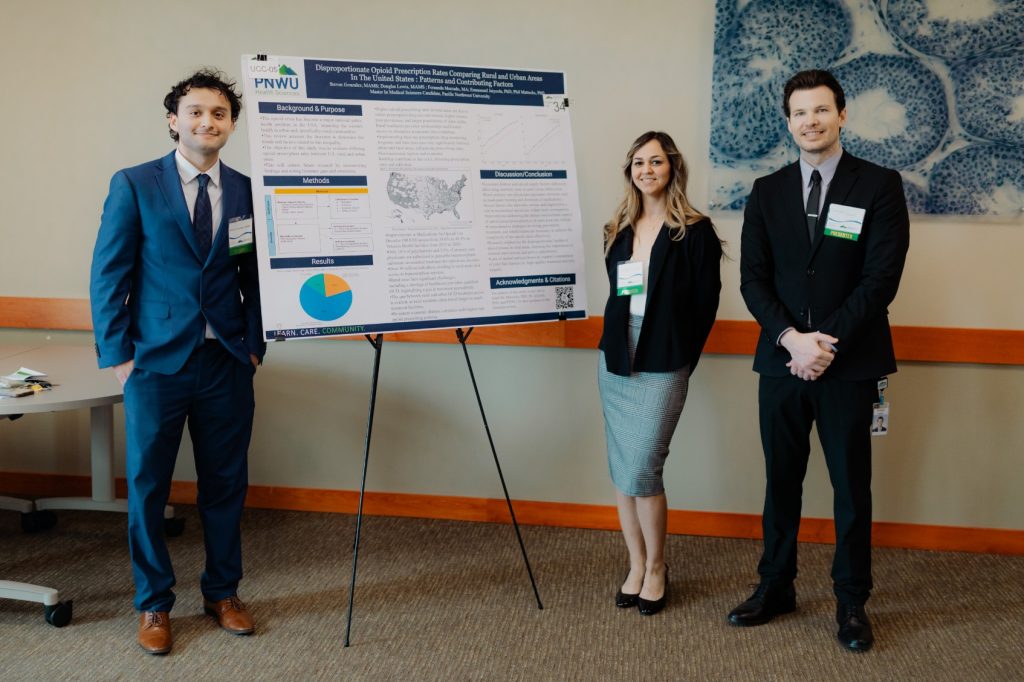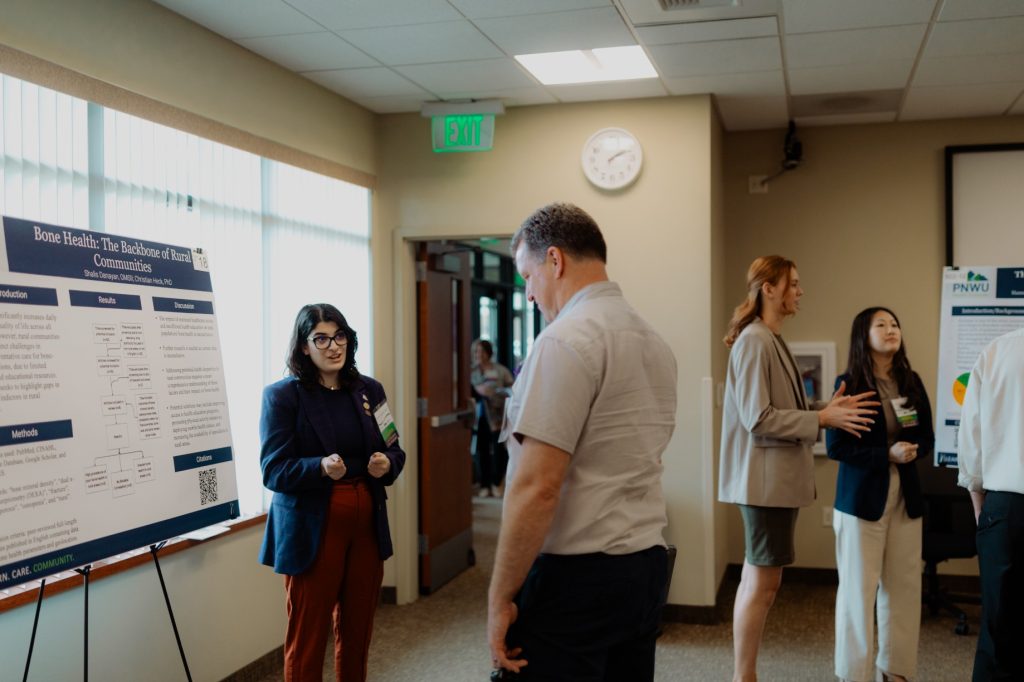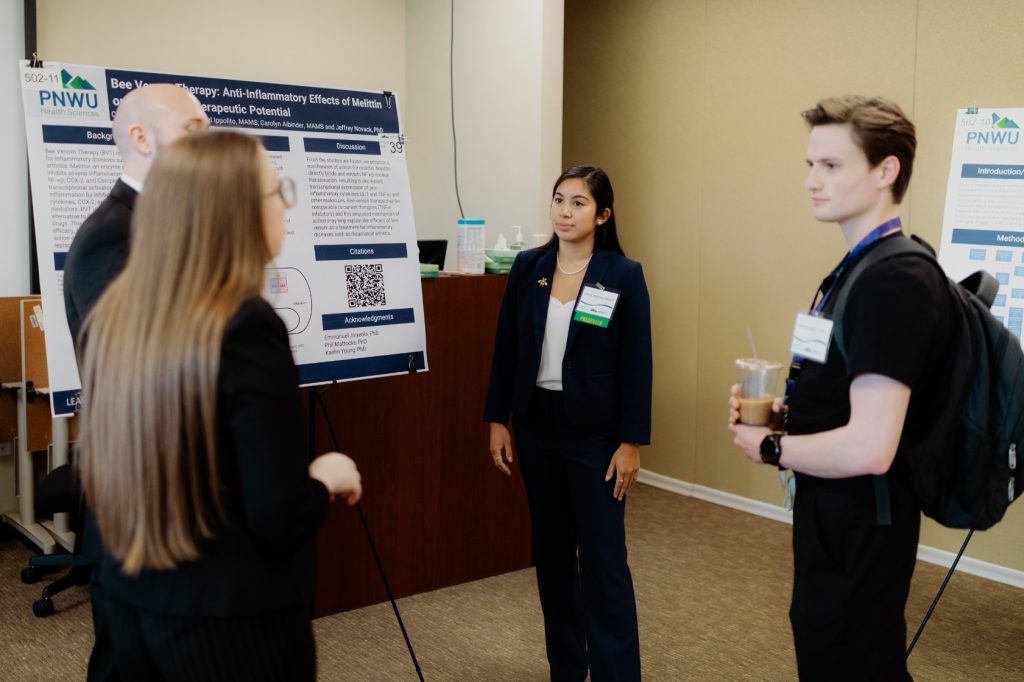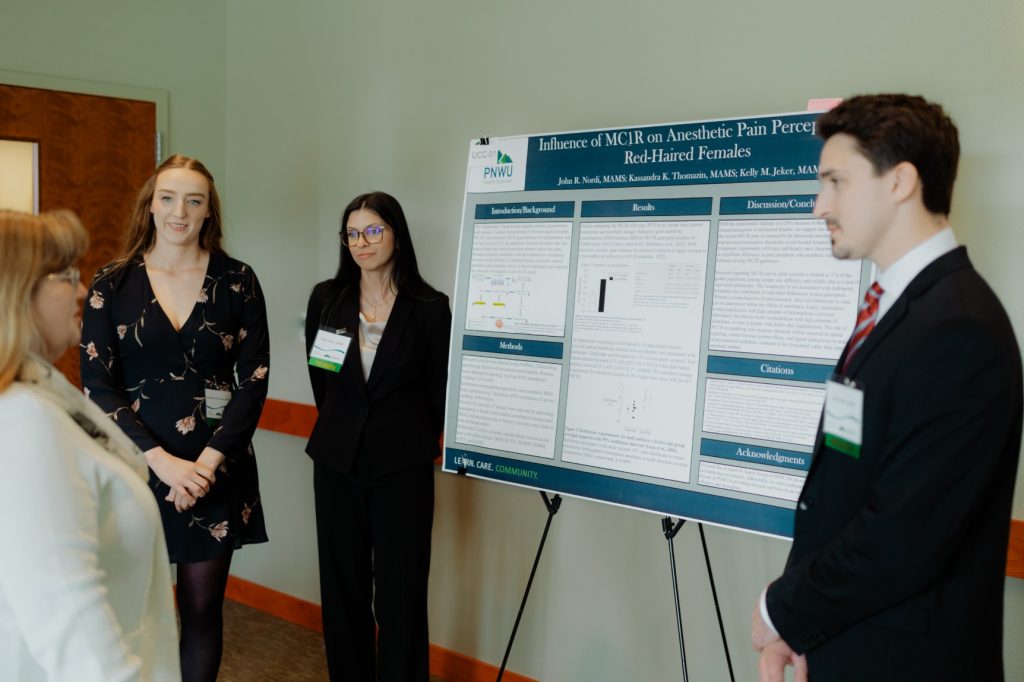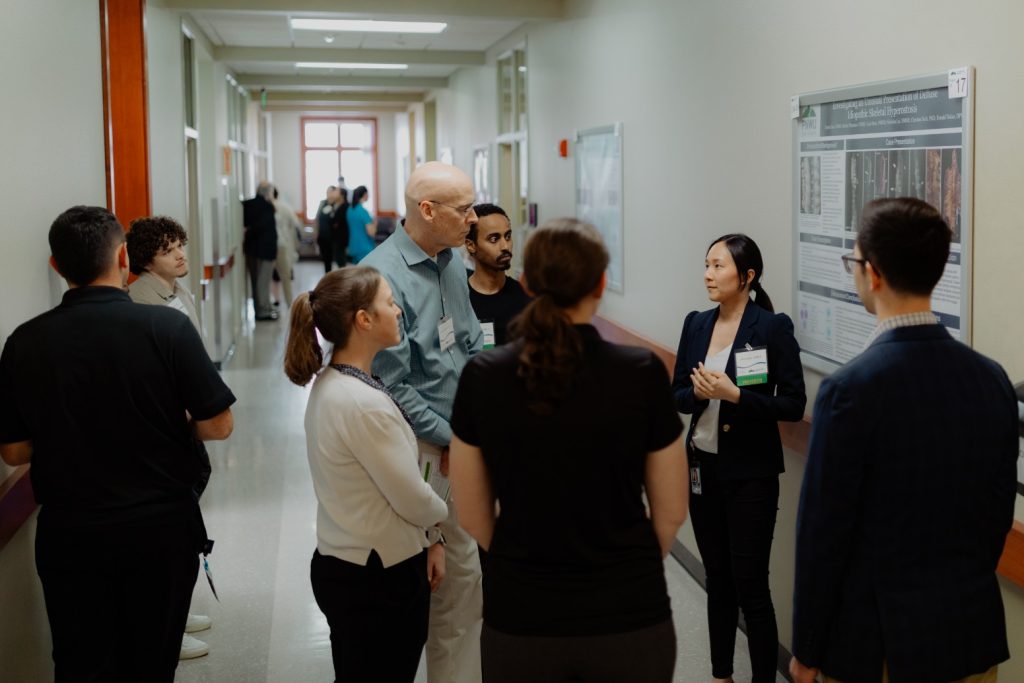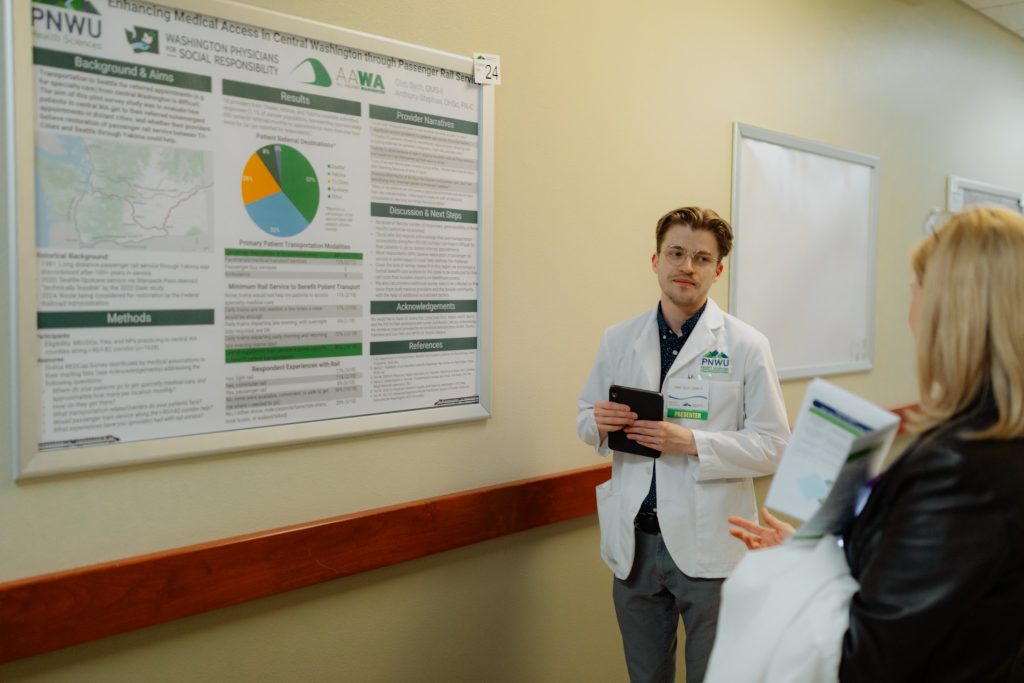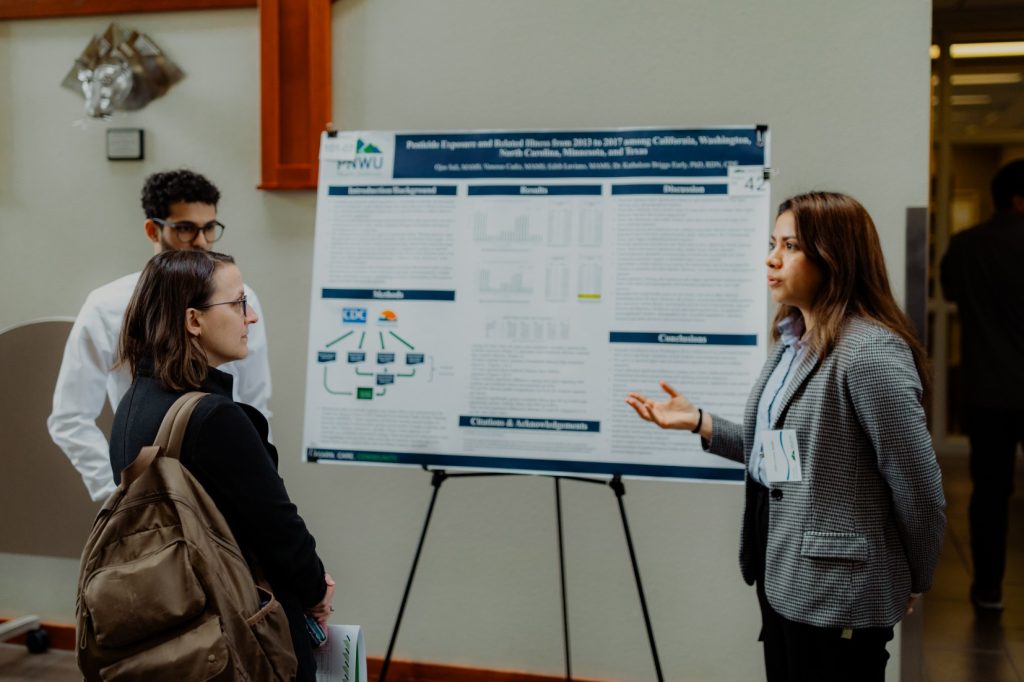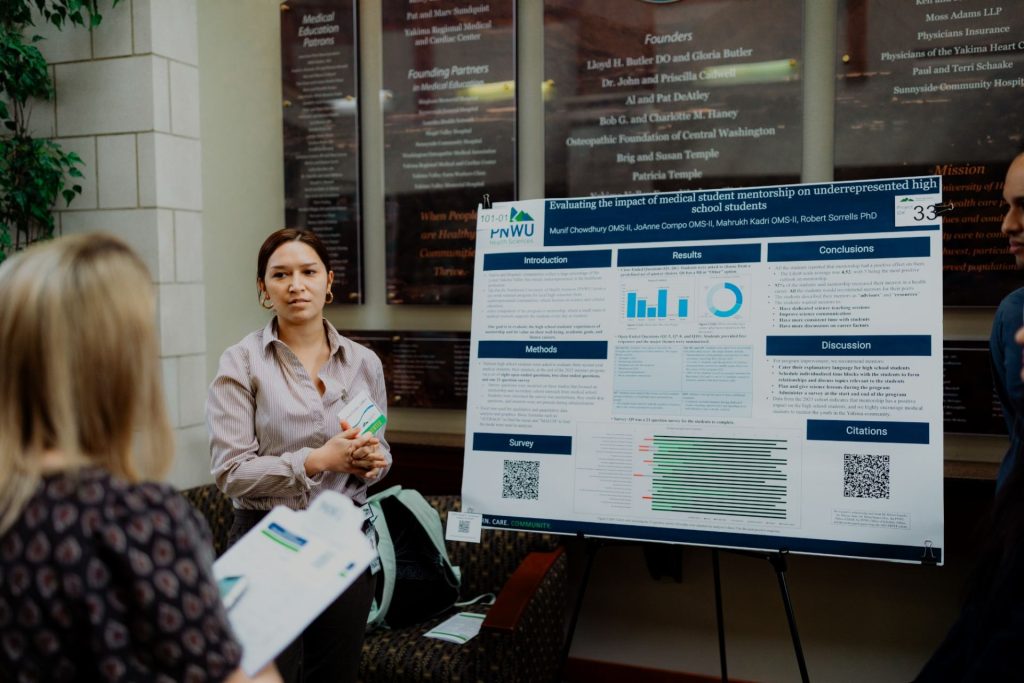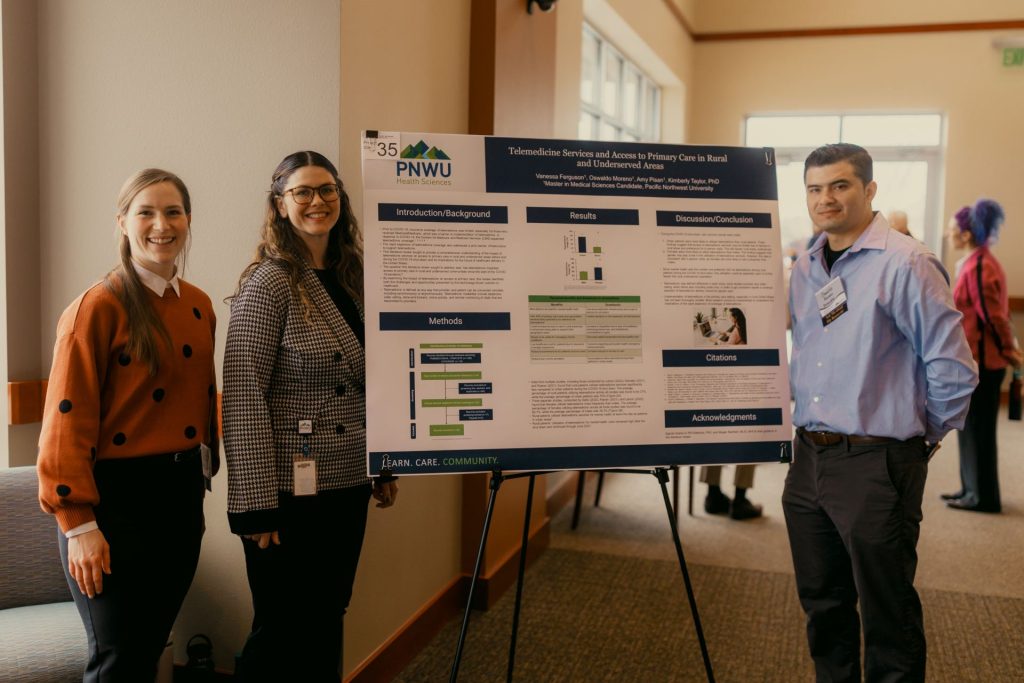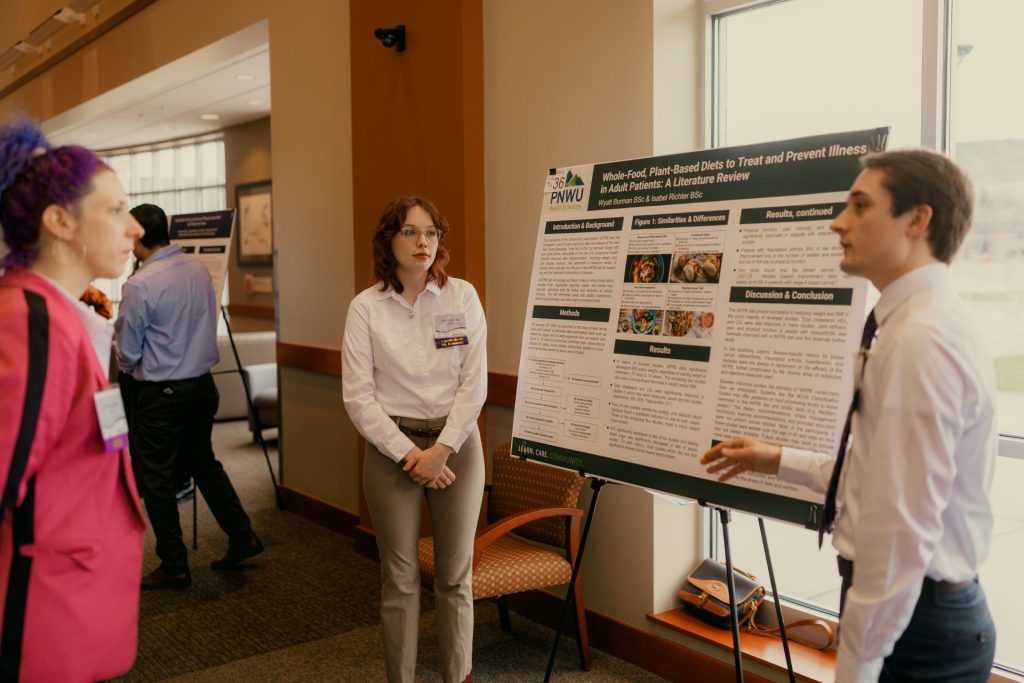The PNWU Research Symposium is a showcase of research, innovation, and improvement in health and health sciences. Join us for an afternoon of exploration as faculty, students, and other research professionals from various health science fields present their latest findings via keynote presentations, scientific posters, and lightning talks. This event is free and registration is required.

Now accepting abstracts for the 2026 Symposium
The Office of Research and Sponsored Programs is now accepting abstracts for the 2026 PNWU Research Symposium. Submissions close on 1/26/26 at 11:59 PM PST. Only projects with results will be accepted. On-campus students, please plan to attend the in-person abstract workshop on 1/20/26 to finalize your draft before submission. More details can be found below under “Upcoming Events.”
Submit your abstract through REDCap here.
If you missed the Introduction to the Symposium and IRB Requirements information sessions in October, slides and recordings are available below.
Day-of agenda, keynote and lightning talk presenters, and registration information will be posted later.

Timeline

Upcoming Events
Abstract Workshop – 1/20/26, 11 AM-1 PM PST, DDEH Event Center

ORSP invites you to attend the Abstract Workshop on 1/20/26, 11 AM-1 PM PST. Lunch will be provided.
At this workshop you will work with a faculty member to review drafts of your peers and receive feedback on your project.
Drop-ins are welcome, registration is encouraged. Please register here.
WSU students, register by emailing ORSP at research@pnwu.edu and attach your draft.
Poster Workshop – 2/24/26, 12-1 PM PST, Zoom **New time!**
Join Zoom here.
Recording and PowerPoint will be available after the event.
Past Events
Resources
Symposium Categories
The PNWU Research Symposium features projects in four categories: Empirical Research, Quality Improvement, Case Reports, and Literature Reviews. Below are descriptions of each to help you determine where your project fits.
Empirical Research involves the collection and analysis of data to answer research questions or test hypotheses. Empirical research is grounded in real-world observations and aims to contribute new knowledge to a particular field through systematic and objective methods that allow for reproducibility.
A Case Report is a detailed and specific description of an individual case, often in the fields of medicine, psychology, or social sciences. It typically presents information about a patient, client, or subject, including their medical history, symptoms, diagnosis, treatment, and outcomes. Case reports are valuable for documenting unusual or unique cases and can provide insights into diagnosis and treatment approaches. The PNWU Library has digital copies of Writing Case Reports: A Practical Guide from Conception Through Publication available.
A Literature Review is a critical and systematic analysis of existing research and scholarly literature on a specific topic. It involves identifying, evaluating, and synthesizing relevant studies, articles, and other sources to provide a comprehensive overview of the current state of knowledge on the chosen subject. The PNWU Library has digital copies of Judith Garrard’s Health Sciences Literature Reviews Made Easy which is a great resource for learning about literature reviews.
Abstract Submission Requirements
The abstract submission form requires the following information:
- Title of your project
- Contact information
- Names of all authors and their credentials
- Primary faculty mentor name
- Contact information for the submitting author and primary faculty mentor
- Type of project
- Select from the following three categories:
- Empirical Research or Quality Improvement
- Literature Review
- Case Report
- Select from the following three categories:
- Abstract
- 350 word maximum
- Abstracts for empirical research, quality improvement, and literature reviews must include the following sections:
- Introduction
- Methods
- Results
- Discussion
- Abstracts for case reports must include the following sections:
- Introduction
- Case Description
- Discussion
- Proof of IRB Approval for projects involving human subjects or their data
- Empirical Research and Quality Improvement projects not involving human subjects or identifiable data MUST seek a formal Determination of Not Human Subjects Research (NHSR)
- IRB Approval or Determinations of NHSR must be obtained BEFORE you interact with humans or access their data
- IRB Workshop Video
Abstract Judging Rubrics
Look through the judges’ rubrics to learn more about scoring elements.
Resources for Developing Abstracts
- PNWU Library’s ‘How to Write an Abstract’ module in Moodle
- Dr. Diana Rhodes’ 15-minute presentation, ‘How to Write an Abstract‘
Read through programs, abstracts, and award winners from previous PNWU Research Symposia here.
Resources for Developing Posters
- Poster template for Empirical Research and Quality Improvement Projects
- Poster template for Case Reports
- Poster template for Literature Reviews
- Developing a Poster Presentation Seminar by Dr. Briggs Early and Dr. Habecker – Recording (requires PNWU login)
- Developing a Poster Presentation Seminar by Dr. Briggs Early and Dr. Habecker – PDF Handout
- Poster judging rubric
Information for Presenters
- Please send your poster to your faculty mentor to review by Tuesday, March 10, 2026.
- Posters are due to ORSP by 11:59 PM PDT on Tuesday, March 17, 2026 via the REDCap link provided in an email from ORSP. This link is unique to your project. Please email research@pnwu.edu if you need us to re-send you your link. We will not accept posters after this time, nor will we accept changes to posters after they are submitted.
- Posters must be submitted as a PowerPoint slide in .jpg format.
- External presenters are welcome to use the below templates.
- External presenters may use their organization’s logo.
- You can alter templates or use different ones, but they must fit the size requirement of 36″ X 48″
- Templates

